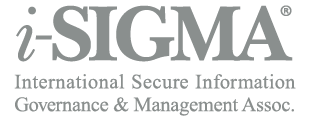How free shred days have evolved and how they haven’t
May 7, 2013
Free shred days have become a polarizing issue in the secure destruction arena. For anyone outside the secure destruction industry, these are events, usually on a weekend, where the public can bring a reasonable amount of confidential records to a collection point and have them shredded at no cost. Shred days have been around in the paper document industry for more than 20 years but now they are also common, maybe even more so, in the electronics area where consumers are encouraged to drop off old computers at community take-back events.
Years ago when secure destruction services were still uncommon, we viewed shred days as a way to expose people to the concept, thinking they would then hire the service when they needed it for their businesses. This was the logic used when NAID coordinated national events with OfficeMax and the Better Business Bureau. Member companies participated in these events for the same reason and also to brand their services.
Over the last 10 years, businesses have become far more aware of the availability of commercial services. Such events are no longer necessary to expose the concept of outsourcing secure destruction. However, that doesn’t mean shred days can’t be used to promote a specific company. Exposure gained from a shred day, whether it is limited to those who drop off material or print or broadcast media coverage, can be very helpful. For better or worse, I get the sense that free shred days are no longer as attractive to local broadcast media as they once were.
More recently a new trend in shred days has emerged. In this new scenario, there’s a commercial sponsor, such as credit union or bank branch that pays the service provider to give free shredding services to consumers. In this case, the service provider gets a fee, hopefully more than the cost of expenses, and some exposure to consumers who attended the event. Of course, they also build loyalty with the event sponsor, who is most likely a paying customer.
Opinions vary widely varied about the impact of shred days or electronic take-back events. Those who still promote them obviously feel the cost is worth it. Those who are sponsoring them are responding to the needs of their customers and may actually be truing a profit. Also, there are service providers who vehemently oppose the concept, stating that it devalues the service. By offering destruction for free, it sends the wrong message to all customers and, therefore, undermines the industry’s ability to charge a fair price. Obviously, every service provider has to make their own decision. In reality, however, the decision to offer the events affects every service provider in their market.
In Thursday’s blog, I will discuss some of the liabilities and subtleties of shred days that are often overlooked.

